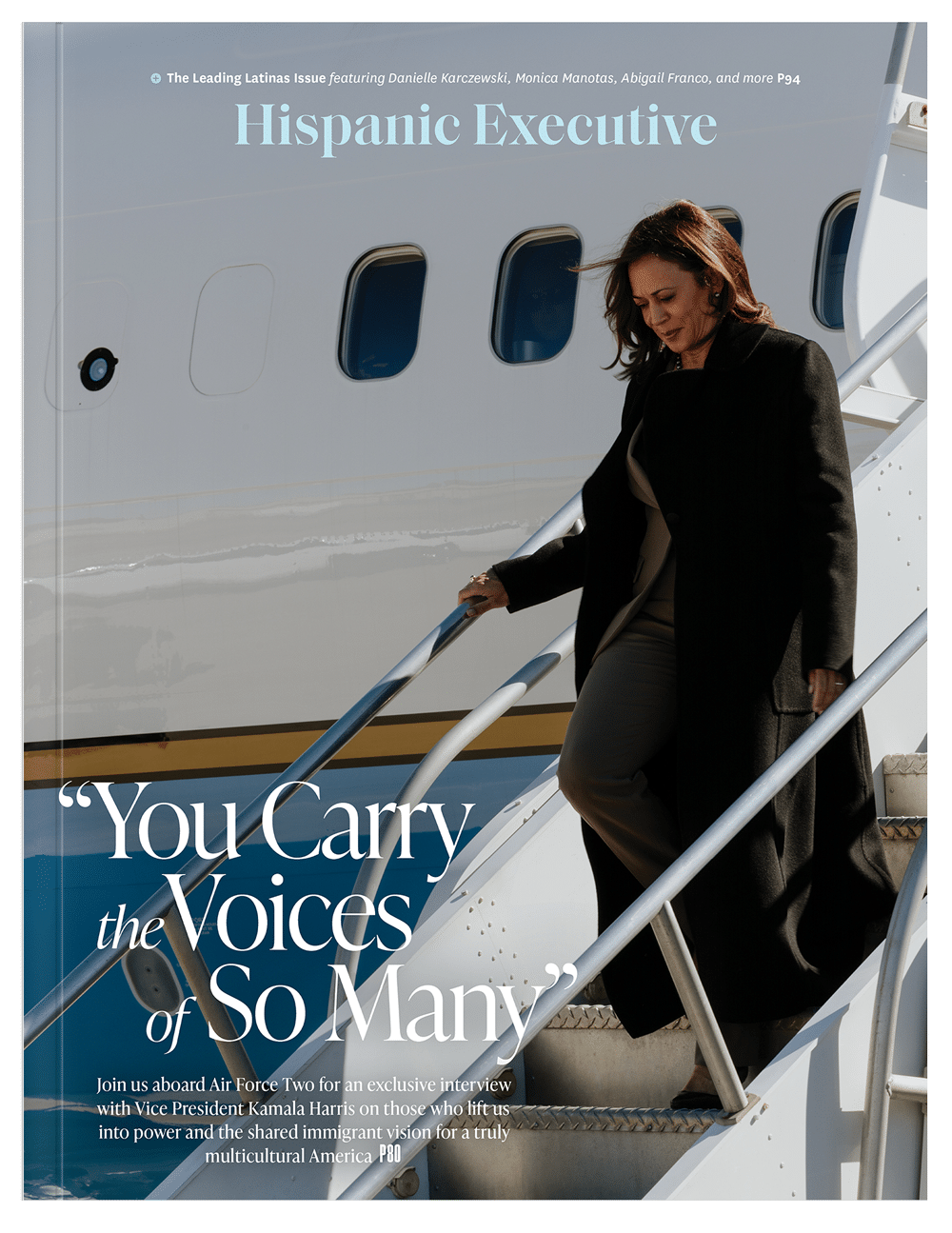Few American civilians have the honor of flying aboard Air Force Two, the modified Boeing C-32 aircraft allocated for use of the vice president of the United States. I think it’s safe to assume that even fewer Latinos have flown that high. In October 2022, three members of the Hispanic Executive team had the once-in-a-lifetime opportunity of joining Vice President Kamala Harris for a day in her life as the second-highest executive officer of the United States.
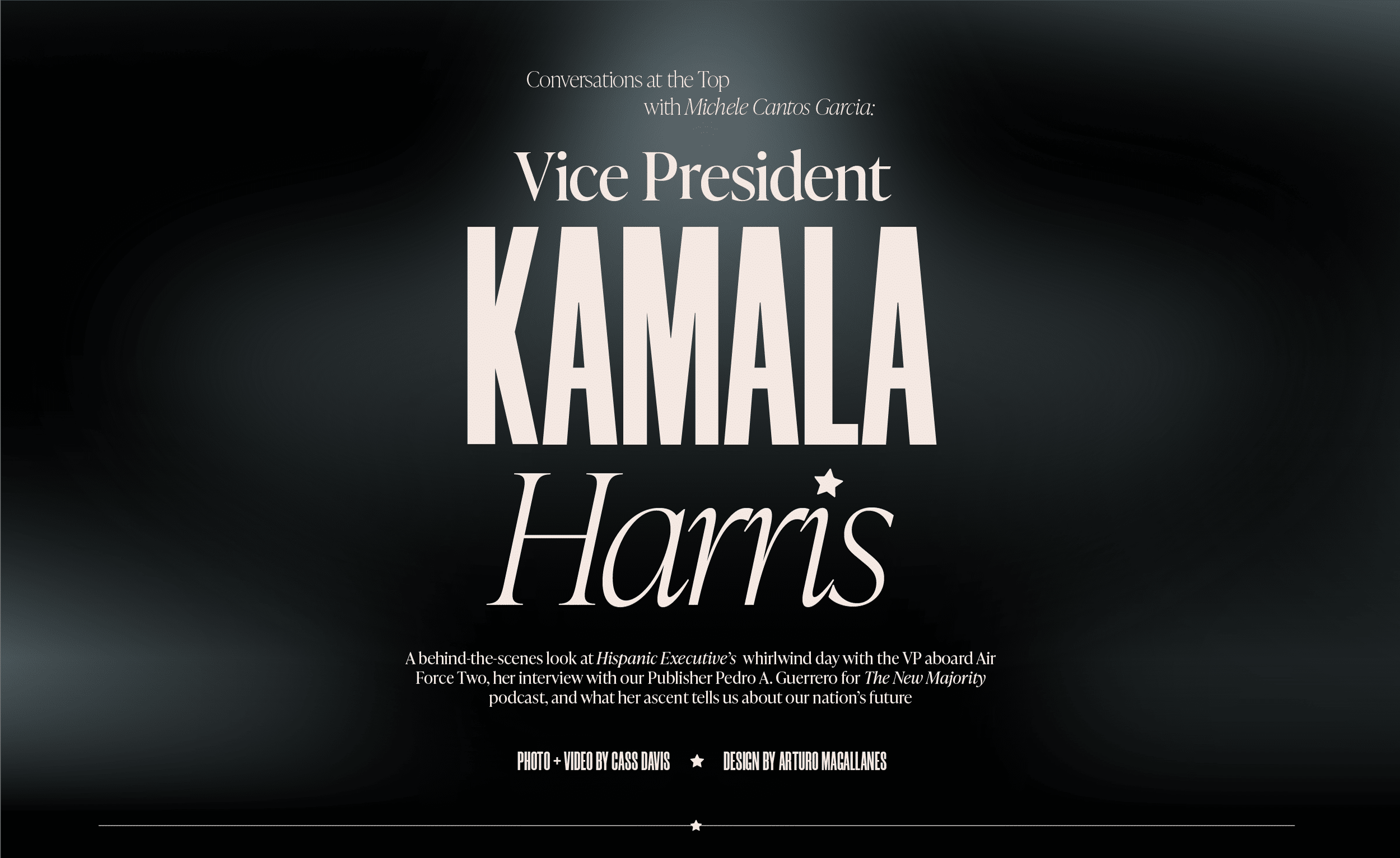
VICE PRESIDENT KAMALA HARRIS

One of the lucky three, Vianni Lubus recalls her hours aboard the aircraft with reverence. “You don’t go on Air Force Two without a profound understanding that you’re breathing rarified air,” says Lubus, the vice president of Hispanic Division and head of audience and engagement at Guerrero, publisher of Hispanic Executive. “To witness firsthand what the vice president does on a daily basis left an imprint on me.”
In Lubus’s decade-long career at the publisher, she has secured high-profile Latina covers stars including actors Zoe Saldana, Jessica Alba, and John Leguizamo; business leaders Sol Trujillo, Christy Haubegger, and Daniel Lubetsky; and politicians Julian Castro and Bob Menendez, among others. However, for my Puerto Rican-born colleague, landing a sitting vice president topped all expectations.
“What most people fear doing even on occasion, be it speak onstage to hundreds of people or on a media interview, she must do every single day,” Lubus says. “And she must make it look effortless. She succeeds in that effort, above and beyond. As a business leader, as a woman, and most of all, as a Latina, I was left with nothing but deep admiration.”
That fall, the Biden-Harris administration had been in power for just under two years, and Harris has borne witness to an eventful new decade as the first woman and woman of color to serve as the US vice president. There was the first COVID-19 vaccine rollout a few months after inauguration, a regional return to war in Europe after seventy years of peace, and national issues that include a mass exodus of Central and South American immigrants and refugees at the southern border and the Supreme Court’s landmark decision that the US Constitution does not confer a right to abortion.


During her interview with CEO and Publisher Pedro A. Guerrero for The Latino Majority podcast, Harris reflects on the significance of her position at a time when a woman’s right to choose is overturned.
“One does not have to give up their faith or deeply held belief to agree that the government should not be telling that woman what to do with her body,” Harris remarks on the Dobbs v. Jackson ruling during her interview for The Latino Majority podcast. “That is decision for she and she alone to make and if she chooses in consultation with her priest, pastor, rabbi with her loved ones.
“So much [of] the strength of our nation has been about the expansion of rights,” she continues, “and this was an example of a restriction of rights. We should see what the trajectory of this might be and it should concern us all.”
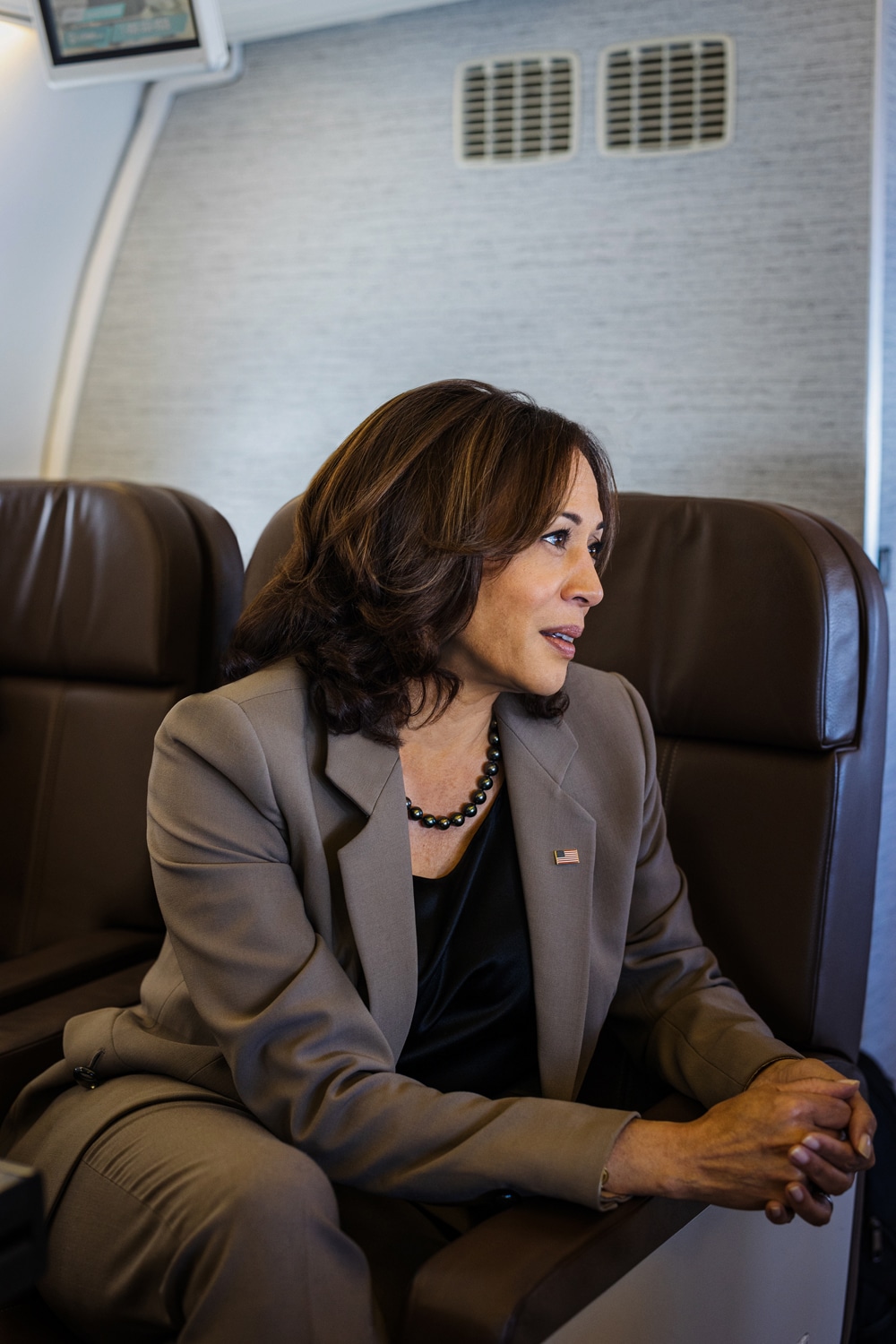
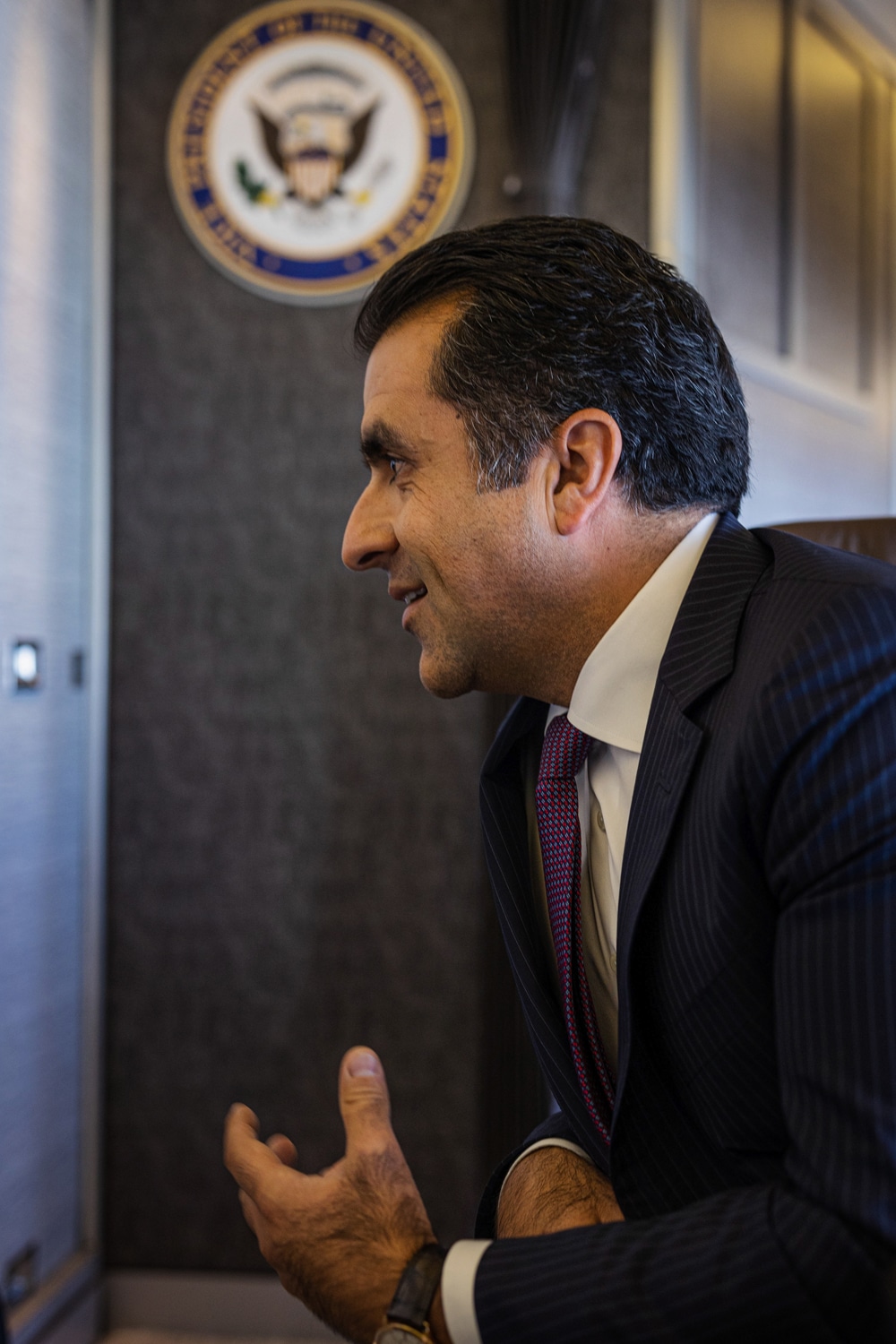
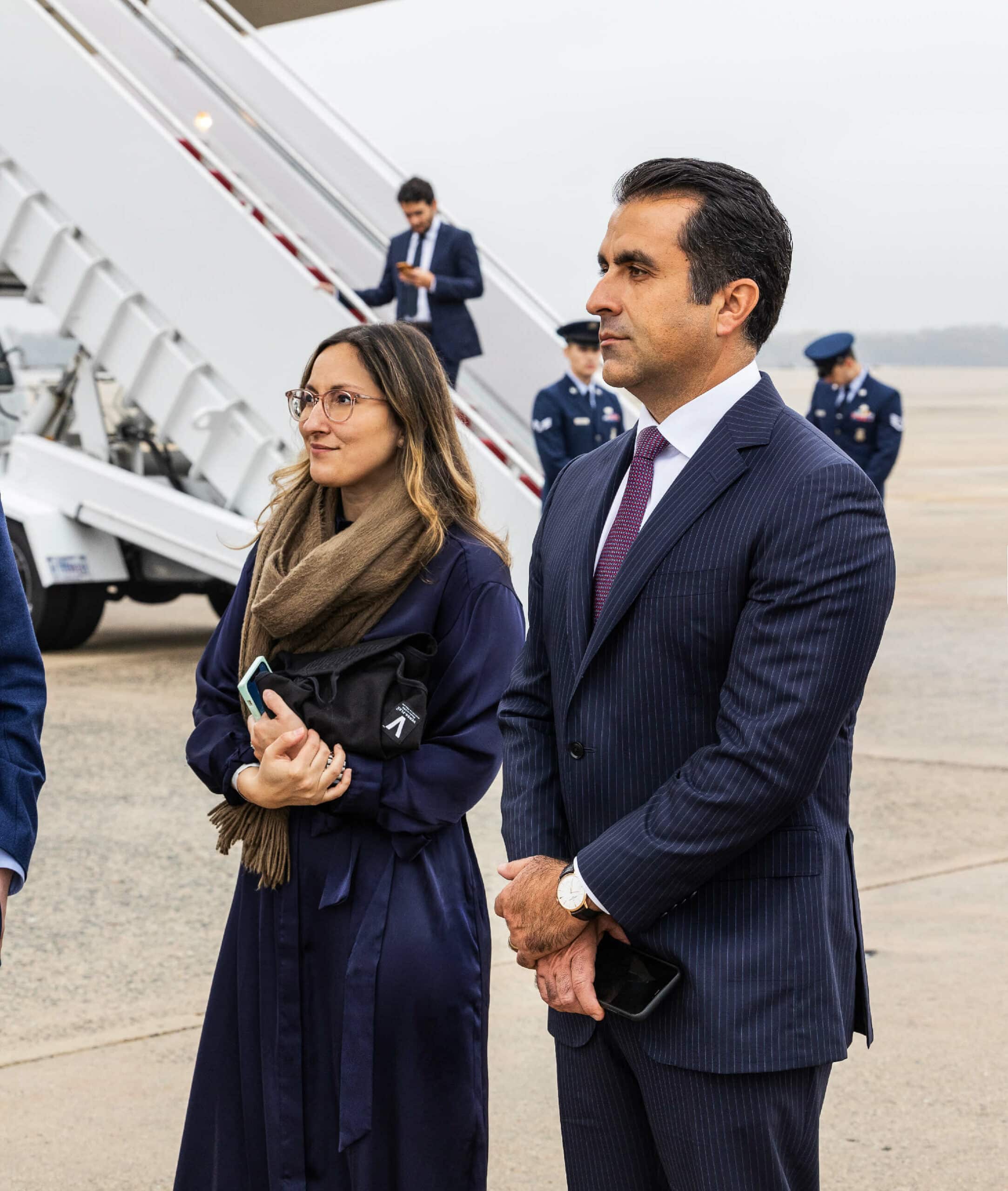
Harris also spoke about the role of business owners and corporate leaders in stepping up where the government has not. “Business leaders have been doing the work to allow their employees to have their benefits be used for the purpose of travel, if the healthcare they need is not available in their state,” she says. “Business owners have [also] been standing up in their community to speak up, because business leaders are also civic leaders, and [they are] taking a stand that: government should not be interfering in such private and personal decisions.”
Guerrero was the second lucky person to travel with the vice president on Air Force Two. When asked about the experience of flying alongside the most powerful woman in America and getting a (literal) front row seat on the life of an historic leader, Guerrero is humbled. “I was struck by the vice president’s warmth and authenticity juxtaposed with her command of the room,” he notes.
I imagine he, ever the pragmatist, is trying to extract every nugget of wisdom available to take it back to the Latino executives he meets daily. “I was thoroughly impressed and convinced she has the gravitas and experience to lead our nation if ever called to do so,” the publisher says.
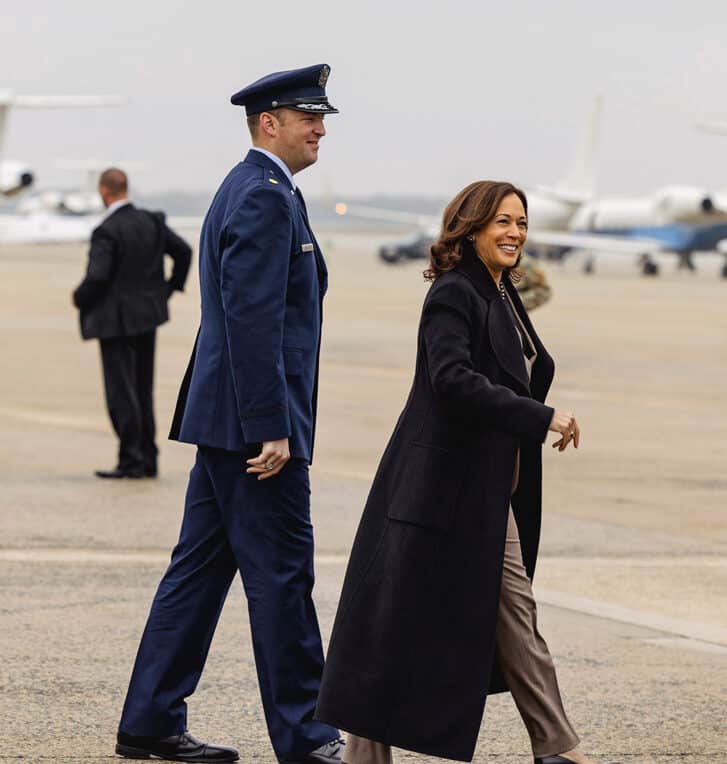
Our team saw the unique opportunity to create a new bridge between Latino business leaders and the White House and interviewed and featured the VP as a multicultural protagonist in the story of The Latino Majority, to borrow our podcast’s name. Our conversations with Vice President Harris have, at least for me, reinforced the importance of sharing the rich stories of multicultural Americans, whether they are in the White House, in the C-suite, or in their community. Of continuing Hispanic Executive’s mission of amplifying the voices of Latino leadership in America. In my own life, it is these stories that have served as an anchor and motivation in times of trepidation.
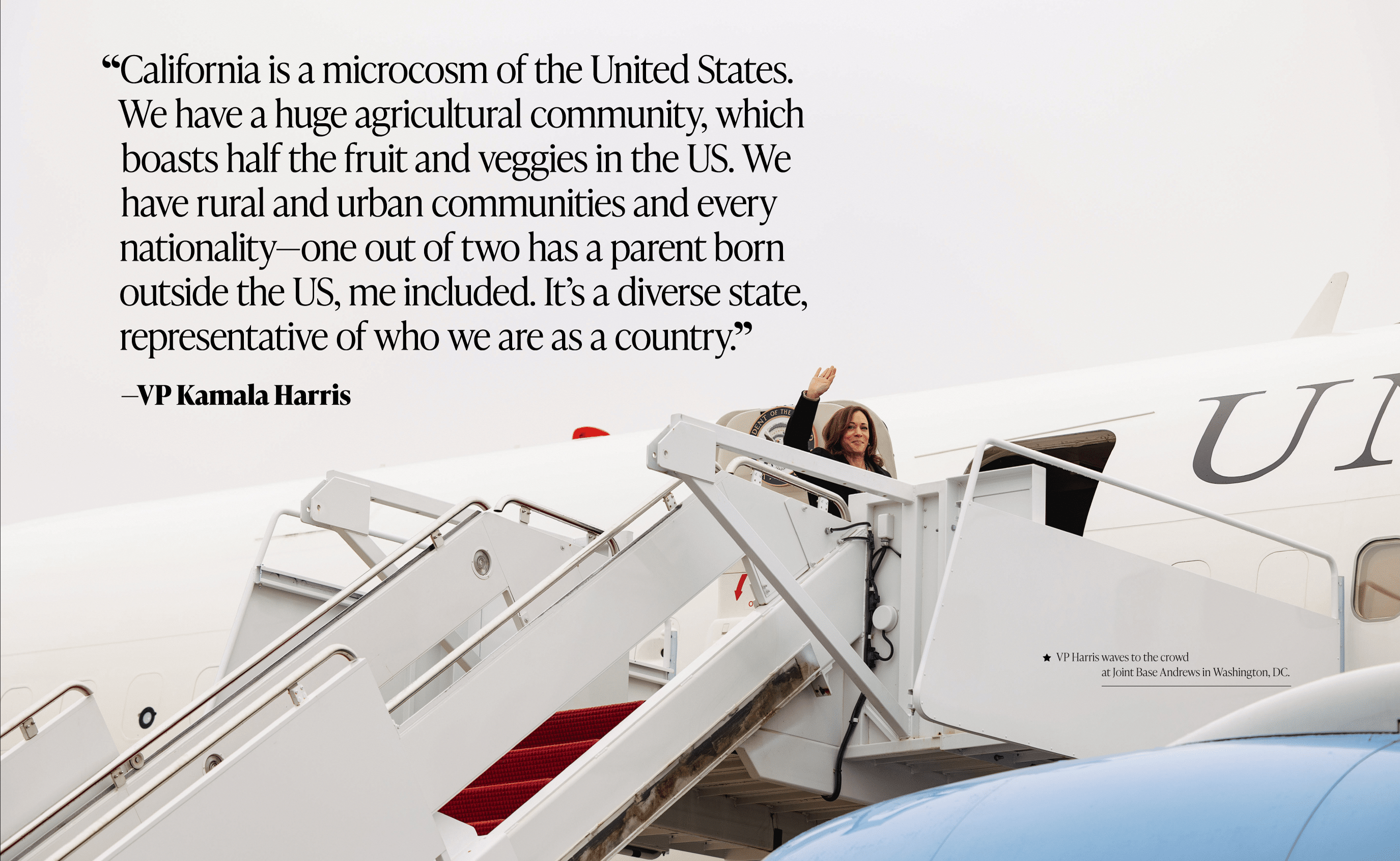

While I was not among the three to meet the vice president—our staff photographer Cass Davis rounded out the trio—I have been working alongside them in what was a months-long storytelling saga. As I thought about the story I’d write, I thought back to a cold and dreary day a few months into my freshman year of college, when a friend and I drove six and a half hours from our northeastern college town to Washington, DC, to witness the inauguration of America’s first Black president.
I was a minor who couldn’t vote, but nevertheless I was defining my political values and character outside of my family and community. My Brooklyn upbringing had not prepared me for the realities of life in a predominantly white institution, so the Obama-Biden calls for hope and unity, as well as the wave of racism and bias hurled at Obama and his family during the election, mirrored my hopes and fears about our country and my future in it.
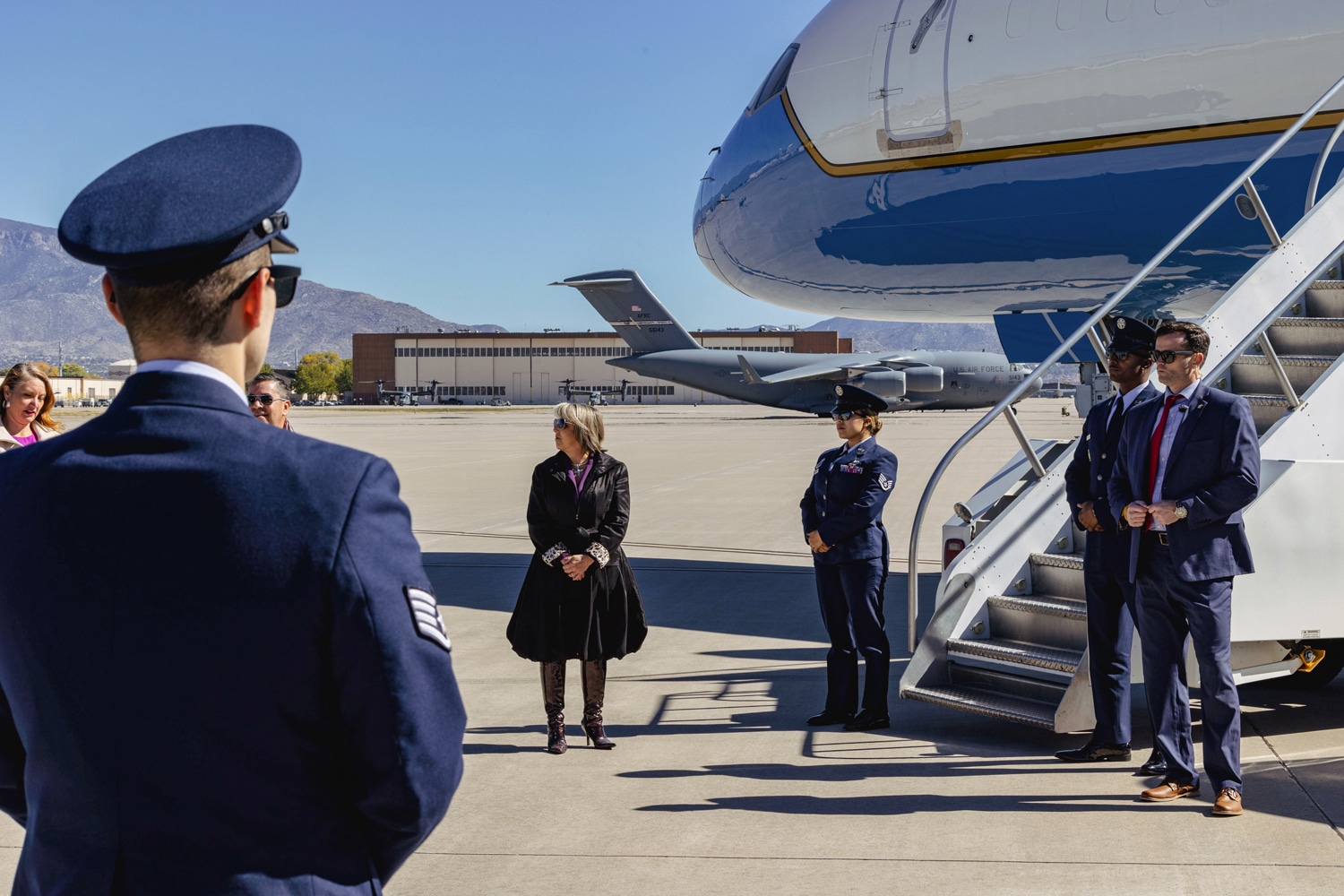
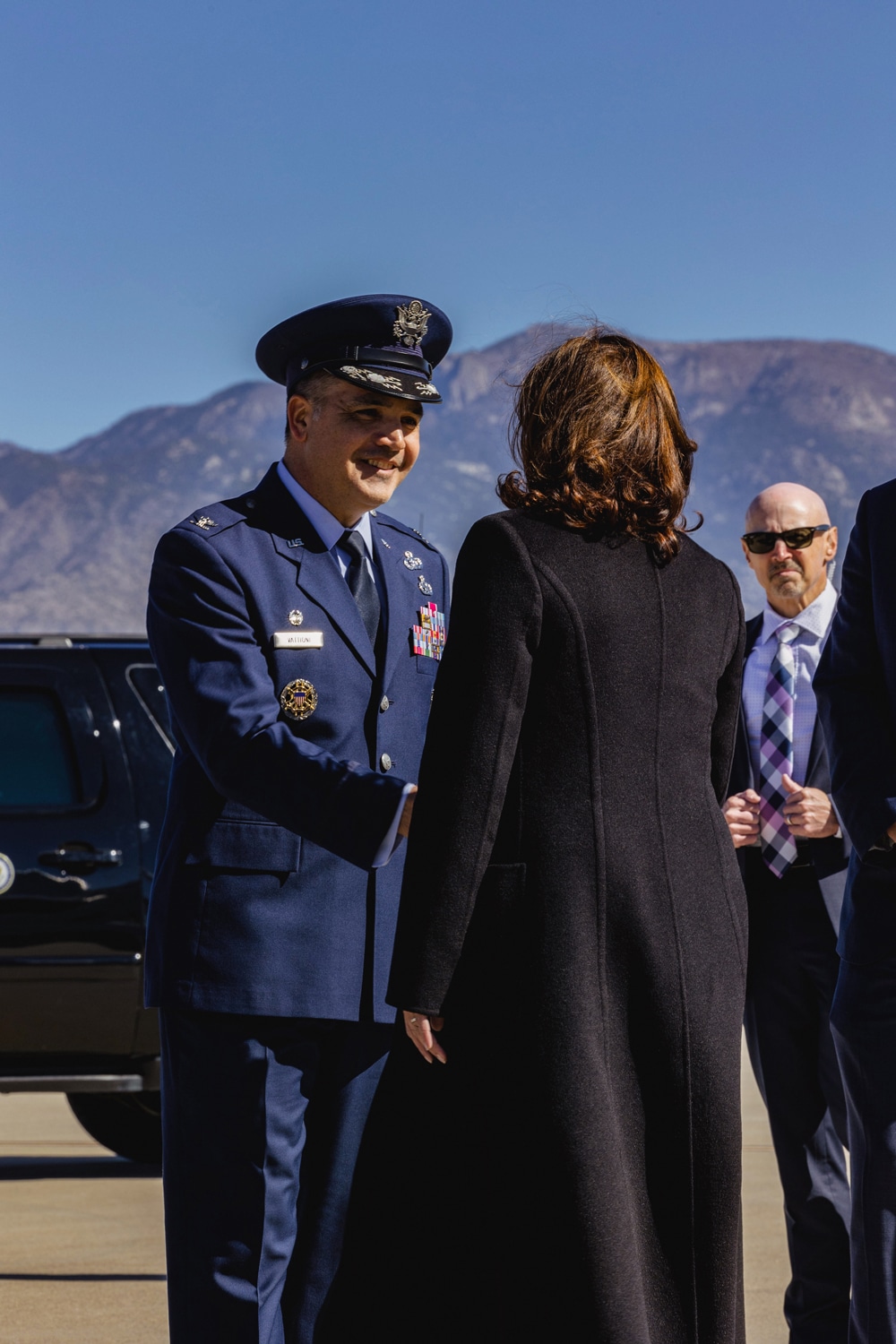
We all know her story by now. Harris is the daughter of Jamaican and Indian immigrants. As children, Harris’s mother taught her and her sister that there was a “wealth of possibilities available” to the girls, that they “could do anything,” and that they should “never let the limited views of others hold them back.”
Yet when she asked what it’s like to have achieved the highest her position as the daughter of immigrants, I am surprised at how quick she is to encourage.
“You are never alone when you walk in that room,” she tells Guerrero. “You carry the voices of so many people who are proud of you, who have struggled and dreamed of the fact that you would be in that room.
So walk into those rooms chin up and shoulders back knowing you carry the voice of so many people who are applauding you each step of the way.”
I imagine that the powerful woman in the pantsuit—who today has hundreds of staffers, secret service agents, and many others helping mobilize and protect her—has had to give herself that same pep talk many times. And I am reminded of that first Obama inauguration and how his election changed the course of US history. Of how it broke a centuries-long streak of impossibility and set the stage, a little over a decade later, for the first woman and the first woman of Black and Asian descent to become vice president.
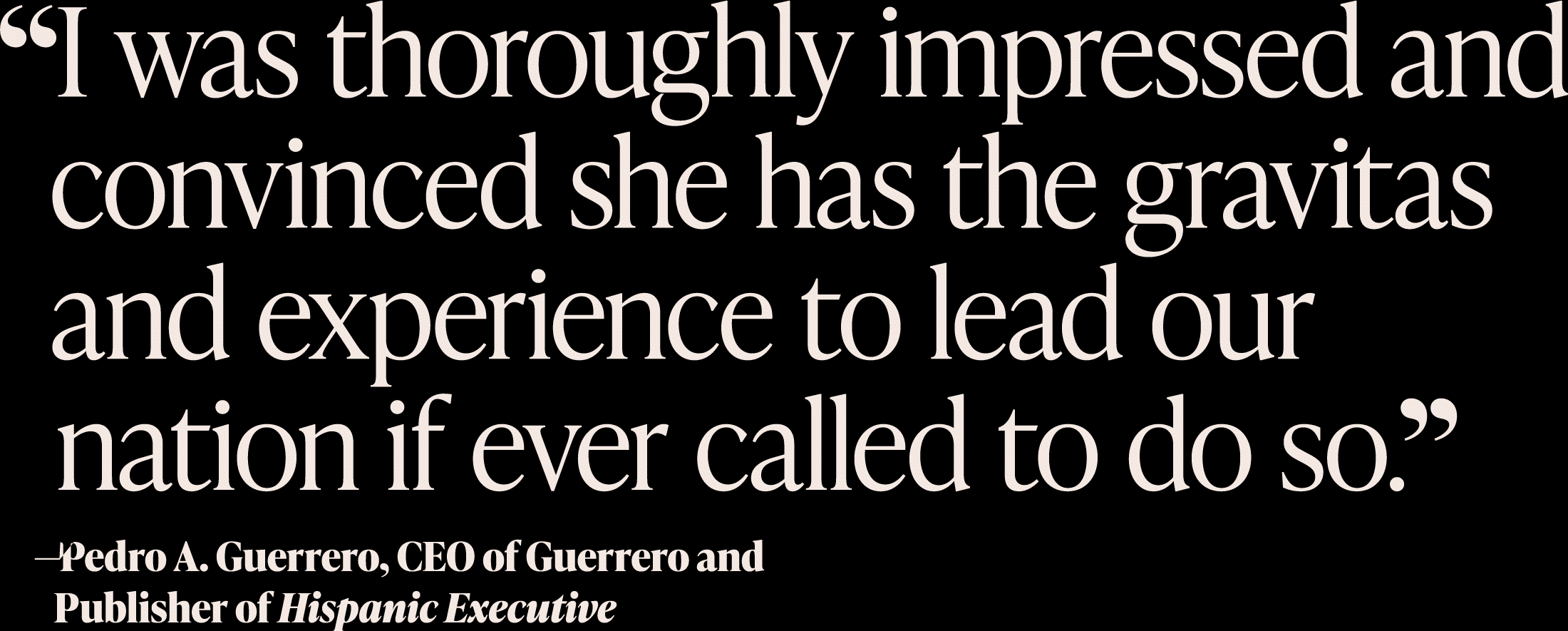
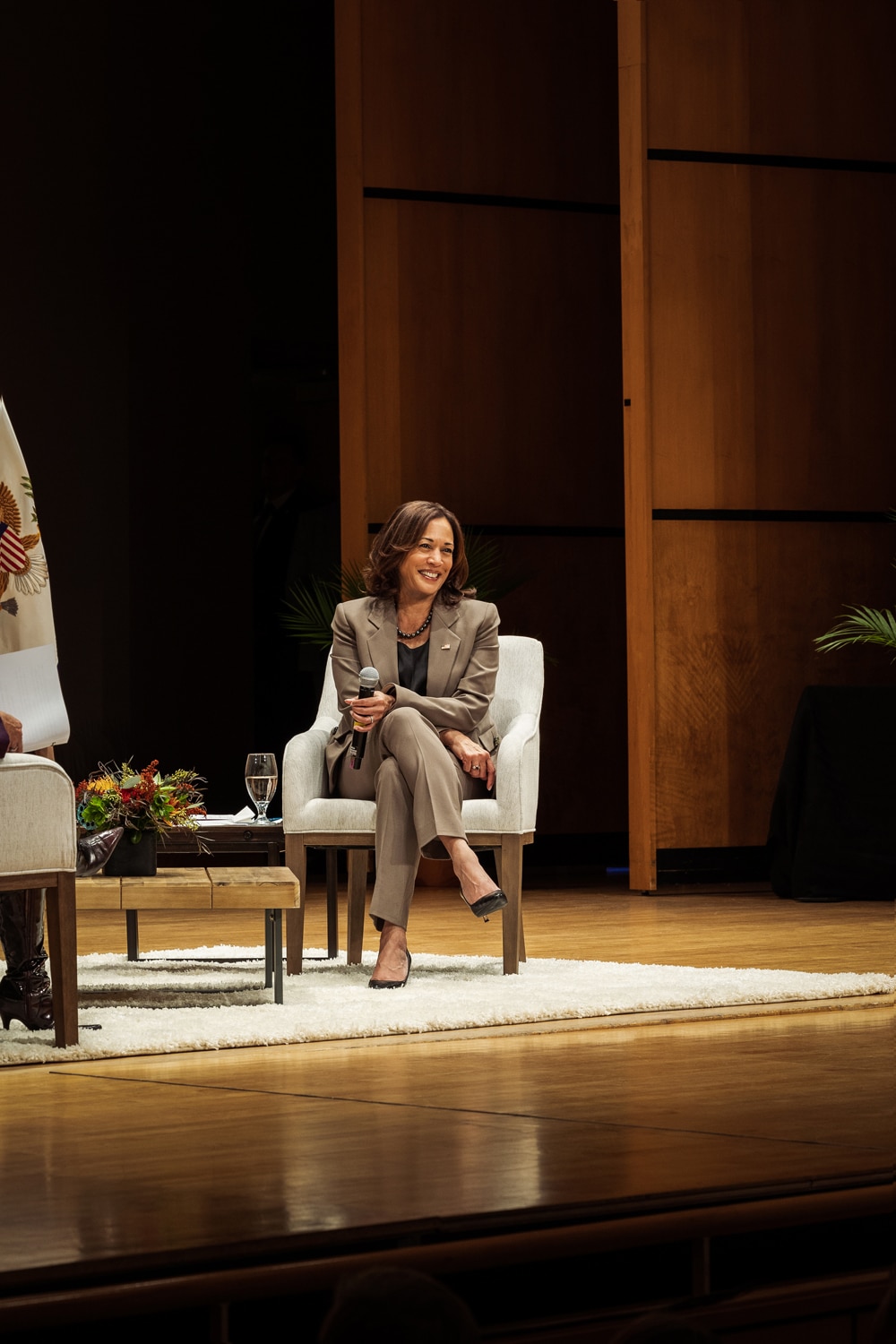
Harris brings a pragmatic mindset to her position in the Biden administration, and it influences her approach when addressing key concerns of the Latino community like the economy.
“[In] the first twenty-two months we took office, millions of people were unemployed, Latino unemployment went from 8 percent to 3 percent. Our [tax] act and infrastructure law made a difference. We kept the economy going with these laws,” she says.” Looking to the future, she adds, “in the coming months, I’m excited about the billions of dollars from the infrastructure law going to fix roads and bridges. Latinos are one third of the construction workforce (as contractors and workers), [so] the economic benefit will make it easier to get/go to work and more good paying jobs.” The VP also vouched to continue working on addressing healthcare, paid family leave, and affordable childcare.
When asked about her home state of California, where almost half of the residents are of Hispanic or Latino ancestry, and what the state bodes for the future of the nation, the VP speaks authoritatively. “California is a microcosm of the United States,” she says. “We have huge agricultural community which boasts half the fruit and veggies in the US. We have rural and urban communities and every nationality—one out of two has a parent born outside the US, me included. It’s a diverse state, representative of who we are as a country.”
She continues “[Latinos are] a very integral part of the history of America . . . the embodiment of the American Dream.” And, in closing, she assures Guerrero that story of Latinos in the US will be enduring.
Perhaps Harris’s groundbreaking appointment will lead to the first Latina, Latino, Latinx, Latine, etc., in the Oval Office.

